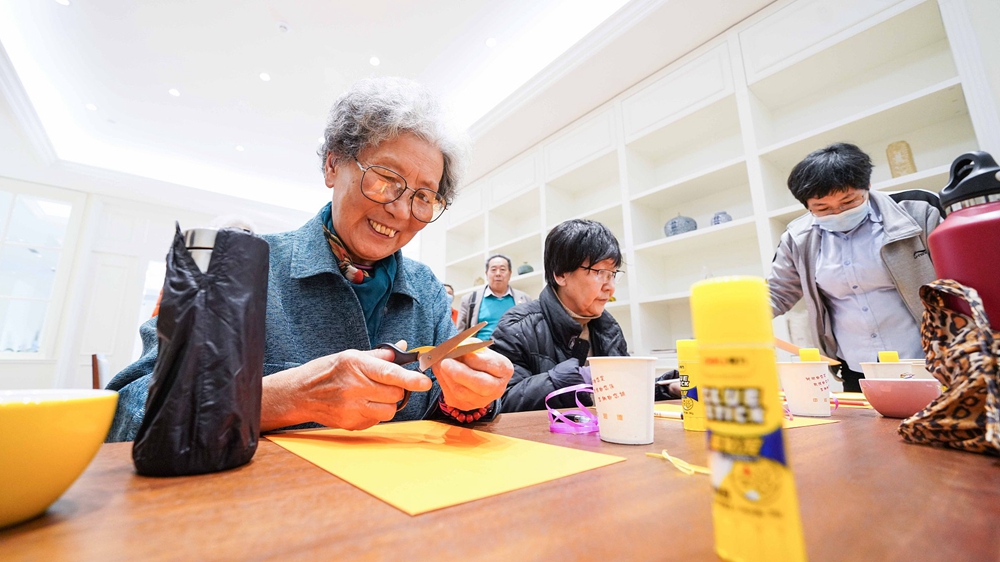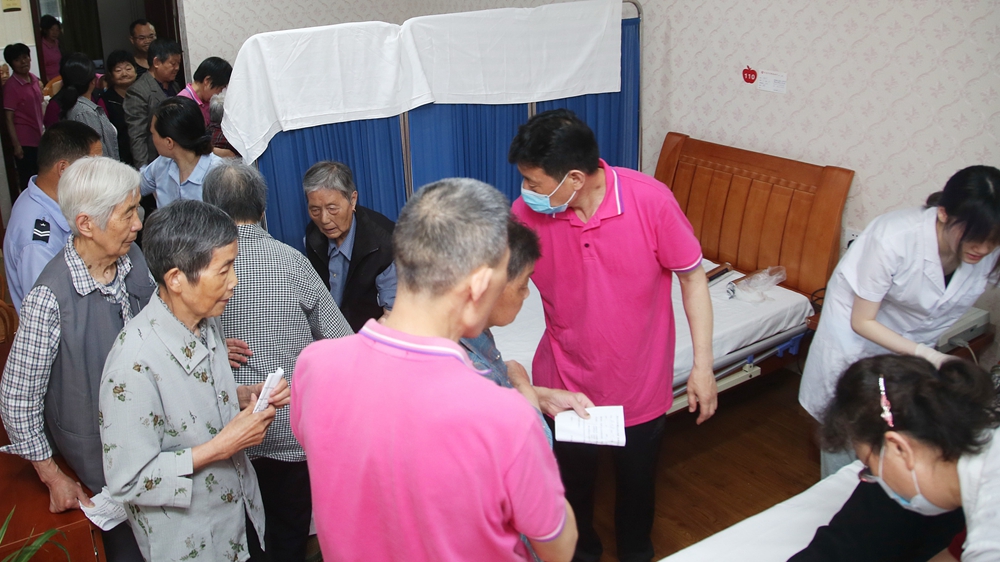
Liu Lianzhi, 77, does craft work at a nursing home in Qingdao City, east China's Shandong Province, November 25, 2020. /CFP
Liu Lianzhi, 77, does craft work at a nursing home in Qingdao City, east China's Shandong Province, November 25, 2020. /CFP
China has accelerated the development of its elderly care services, with more than 8 million beds available for the elderly, a 7-percent increase from last year, according to the Ministry of Civil Affairs.
There were 254 million people aged 60 or above in China at the end of 2019, and the number will grow to 300 million in 2025, Minister of Civil Affairs Li Jiheng said at a national conference on Saturday.
Boosting the development of basic elderly care services will be one of the ministry's key tasks in 2021, the conference said.
China's aging population has created a headache for elderly care services.
In recent years, reports have stressed the serious shortage of beds at elderly care institutions in big cities.
Earlier this year, Zhao Chenxin, the secretary-general of the National Development and Reform Commission, said a campaign had been launched to mobilize local governments, financial institutions and nursing homes in a bid to let elderly people with low and middle incomes enjoy affordable elderly care services.

Elderly people receive a free physical examination at a nursing home in Changzhou City, east China's Jiangsu Province, May 26, 2019. /CFP
Elderly people receive a free physical examination at a nursing home in Changzhou City, east China's Jiangsu Province, May 26, 2019. /CFP
Thanks to increased integration between emerging industries including artificial intelligence and elderly services, more and more organizations were offering elderly care services in communities and in old people's homes. This could bring more options and quality service for seniors and their family members, Zhao told Chinanews.com.
Another issue however is the shortage of personnel working in elderly care services. Data released by the Ministry of Civil Affairs in March showed that more than 2 million elderly people are cared by around 200,000 nursing staff workers at nearly 40,000 nursing homes. This means one nursing staff worker on average has to take care of 10 people.
And many professional workers and young nursing workers are quitting this line of work, leaving older and lower-skilled nursing workers to care of the growing elderly population.
In Shanghai, the average age of nursing staff is just under 51 years old and only 4.4 percent graduated from a college or university, according to Cishan Gongyi Bao, a newspaper owned by China Charity Federation.
In the next five years, the ministry will improve the overall design of the country's basic elderly care services, Li Jiheng told Saturday's conference. This will include developing home and community-based elderly care service institutions, and promoting innovation at the grassroots level, he said.
(With input from Xinhua)

